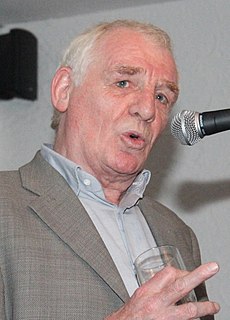A Quote by Jonathan Miles
A banal poem is never more than a banal poem. A banal or trite lyric, however, can be - with the right vocal cords - brilliantly and shatteringly conveyed.
Related Quotes
They just talk drivel. Whoever is winning is great, whoever isn't, isn't. It's banal. And also semi-literate at times ... they never criticise in an intelligent way. Anything that isn't banal is said to be an outburst. They've created this cartoon world where everyone talks like Lineker and says nothing.
It's an American thing, but it's particularly a southern thing, and its romanticization is hyper-Southern. And it's still irresistible to me, even in middle age. There's something that pulls me to that, but at the same time, I have this increasing awareness of how banal it really is - that evil is inherently banal.
Perhaps the choice is a negative one, in that I was trying to avoid everything that touched on well-known issues - or any issues at all, whether painterly, social or aesthetic. I tried to find nothing too explicit, hence all the banal subjects; and then, again, I tried to avoid letting the banal turn into my issue and my trademark. So it's all evasive action, in a way.
I love and admire everyone who is different. I love that. The 'jet set' is banal. 'Good taste' is banal. Eccentricity is chic. Good taste paralyzes. But punk or street fashion or a tattoo-covered body, that is interesting to me, and that I love. I didn't go to fashion school. I learned from watching couture shows on TV and reading magazines. That made me dream.
There's a certain kind of conversation you have from time to time at parties in New York about a new book. The word "banal" sometimes rears its by-now banal head; you say "underedited," I say "derivative." The conversation goes around and around various literary criticisms, and by the time it moves on one thing is clear: No one read the book; we just read the reviews.
As much as we - in a revisionist way - tell ourselves that we've always been a righteous country with a couple of swerves off the path, we need to look back and see that we've always also been a racist country and have had a tendency towards banal aggressiveness. The thing that's alarming is not so much that a few people in America at the top are initiating these crazy policies, but that the middle is willing to go there too. There's a strange movement of the middle to this position of banal aggressiveness.
I have taught the long poem off and on for years. The more book-length poems I read and studied and taught the more interested I was in the possibilities in writing a poetry that applied formal and substantive options of narrative and non-narrative, lyric and non-lyric. I found many pleasures in this kind of writing. The long poem is as old as the art form.
































